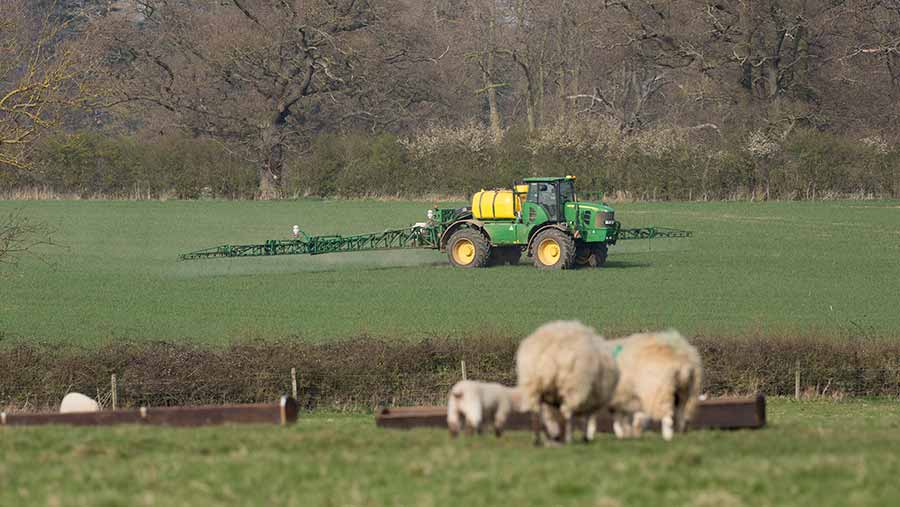Analysis: How Michael Gove’s Agriculture Bill will reshape UK farming
 © Tim Scrivener
© Tim Scrivener The government’s Agriculture Bill represents the biggest overhaul of UK farm policy since the end of the Second World War – and heralds the end of public support for food production, which has been in place since before that.
The 62-page document sets out plans to abolish direct payments to farmers in England and replace them with a new system of public money for public goods – rewarding farmers who undertake environmental measures rather than those who produce food. Other UK nations are expected to implement similar policies.
See also: Direct payments to be phased out by 2027
Central to the new policy will be an Environmental Land Management (ELM) scheme. It will build on existing stewardship schemes familiar to many farmers, although the government says it will be less onerous and involve less bureaucracy.
The new system will be phased in over seven years, with the last direct payments to farmers made in 2027. The ELM scheme will be piloted and honed over the same period and will be fully in place by the time direct payments end.
Gove’s ‘Green Brexit’
Widely anticipated following the government’s Health and Harmony consultation earlier this year, the Agriculture Bill has been welcomed by environmental groups keen to hold Defra secretary Michael Gove to his pledge to deliver a “Green Brexit”.
But the document’s emphasis on environmental measures has come as a bitter blow to farm leaders. They say the bill’s failure to focus on the importance of food production threatens to undermine the agricultural sector at a crucial time as the UK leaves the EU.
Public goods supported in future will include improvements in soil, air and water quality, protecting and enhancing wildlife habitats, providing public access to the countryside, protecting the rural environment, flood-risk mitigation and carbon reduction.
However, the NFU says a future agricultural policy that ignores food production will be damaging to farmers and consumers. Growers and livestock farmers need the right financial and policy framework if they are to compete in a volatile global marketplace, it warns.
The government argues that there will be grants to support agricultural productivity. And it has promised to help create a viable futures market for agricultural commodities. It has also reserved the right to intervene if there is a crisis in the marketplace – much as the EU does now.
But these measures are likely to be limited in their scope. The Agriculture Bill suggests such support is likely to last only until 2028 or 2029. There is also a big question over the budget for the new policy, with no guarantee it will match current public expenditure on agriculture.
For many farmers, the coming decade will be a time to shape up or ship out. Direct payments make up more than half the income on many farms. Those unable to adjust to life without them are already being advised to consider the offer of a lump sum to leave the industry.
Using a final financial incentive to encourage the older generation to retire is likely to go down well with younger and ambitious farmers keen to get on. But others will see it as an insult and a threat to a cherished way of life that has lasted generations.
Michael Gove clearly wants farming to be more of a meritocracy – standing on its own two feet rather than being propped up by subsidies. But it is important that the transition is properly managed and farmers are given a chance to thrive after public support is withdrawn.
